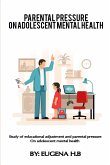INTRODUCTION On 3rd of April, 2017, an incident shook the entire nation. A young boy pursuing his studies from one of the prestigious educational institute of Mumbai, committed suicide by jumping off the 19th floor of a 5-star property in Mumbai. What turned out to be even more macabre about the incident was that, the entire process of committing suicide was being live streamed on the Internet. Drinking wine, smoking a cigarette and dressed in a bathrobe, Arun (name changed) gave a "tutorial" on "how to commit suicide". According to The Indian Express report, an officer at Bandra police station said, "We have recorded the statement of the hotel's security manager, friends and father of deceased. Arun's (name changed) friends told us he was depressed and also addicted to online gambling. We are investigating if he lost money online in this regard." The urge to share his dying moments virtually brings to limelight the importance of online world in today's young generation. (Source: The Indian Express, April 5, 2017 2:46 am) Incident like this and more has led to a growing concern among health professionals, care givers, researchers and academicians, regarding growing fascination for the Internet in today¿s technologically driven youth. Talking about teen years, it in itself is a crucial phase in every individual¿s life, marked by transition - from being a child to now learning adult roles. In other words, it is a final period of a prolonged maturation (Paus, 2005) and it represents major transitional phase that bridges the onset of adulthood (Choudhary et al., 2006). The term adolescence which comes from a Latin word adolescere, meaning "to grow" or "to grow to maturity" implies, not only physical growth but also social growth, economic independence, emotional and sexual maturity in a given cultural context. During adolescence, there are pronounced changes at the emotional, cognitive and behavioural level besides the hormonal and physical changes (Blakemore et al., 2007; Choudhary et al., 2007; Blakemore and Choudhary, 2006). While adjusting to their altering body, emerging needs & skills, roles and responsibilities (Christie & Viner, 2005), they also face developmental tasks related to pubertal changes, identity formation and changing pattern of relationship with parents,
Hinweis: Dieser Artikel kann nur an eine deutsche Lieferadresse ausgeliefert werden.
Hinweis: Dieser Artikel kann nur an eine deutsche Lieferadresse ausgeliefert werden.








